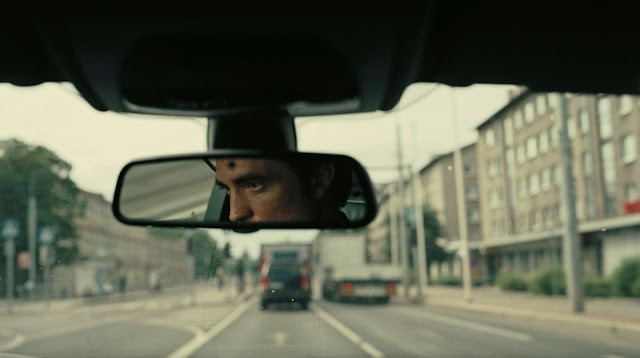"We live in a twilight world."

Warner Bros. Pictures / Syncopy
Starring John David Washington and Robert Pattinson as a nameless CIA operative (only referred to as "the Protagonist") and his handler who must unravel a very convoluted plot to destroy the world, Nolan drops you into the middle of the action and stops every now and then to clunkily explain what's going on, but none of it really matters.
Clues and mechanics are hinted to bridge the story going both forward and backward at the same time. As characters say, it's not time travel but an inversion of how one perceives time. It makes sense on screen visually but not so much all when said aloud. For good and ill, Tenet indulges all of Nolan's trademarks and ticks to their extremes.
Unlike most of his previous films, Nolan eschews the usual movie stars for a younger cast anchored by a very physical Washington and charismatic Pattinson. There are few characters, mostly men—refreshingly, many of colour. Elizabeth Debicki plays an abused wife to Kenneth Branagh's devilishly evil Russian villain in a very dramatic domestic turn. Everyone's performance is cerebral and ultra-serious (save for Pattinson's welcomed playfulness) in a mixture of James Bond's globetrotting antics and pulpy action genre fare.

Cinematographer Hoyte van Hoytema expands his visuals in the international espionage actioner. Nolan withholds basic narrative information so it can unfold visually on the screen in extra dramatic fashion. His big ideas and concepts play out wondrously through repetition, action, and drama. It might be his most visual film to date despite its standard but very beautiful locations.
Novice collaborator Ludwig Göransson's musical score mimics elements of Nolan's usual composer Hans Zimmer (who was preoccupied working in the upcoming Dune) with exciting notes and a propulsive sense of tension. All these elements make the film feel both sparse yet crowded then exhilarating but exhausting. Tenet cannot really be explained, spoiled, or even discussed conventionally. For all its exposition, it's all about how it feels.
Tenet makes the most of its labyrinthine narrative. It's not so much mind-bending as it is expository in both a literal and visual sense as only a film Nolan and his collaborators could have created. Folding time and metaphysical elements of movement and action, the film feels like it needs to be seen, seen again, forwards and backward to be fully digested. It's pure, dizzying spectacle.
Tenet screens exclusively on 70mm film at The Park Theatre.
More | YVArcade / AV Club / Indiewire / Vox






